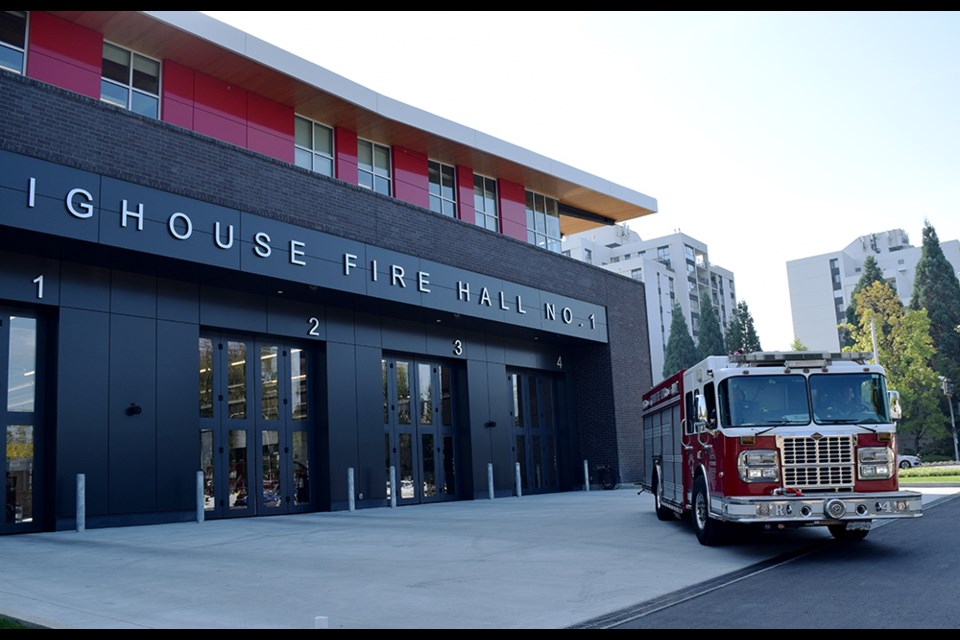On a sunny September day in Richmond, an alarm bell pierces the sense of calm in the immense concrete garage at Richmond’s new Brighouse Fire Hall.
A voice over the PA system tells firefighters the call is a medical emergency. Several men appear, from a door to the hall’s kitchen instead of sliding down the brass poles, and shimmy into their gear before climbing into one of two waiting trucks.
The first one, ready, turns on its lights and siren as the floor-to-ceiling glass door in front of it splits in the middle and slides out of the way. The truck drives off, and the glass door closes behind it.
“Every second counts,” says Richmond Fire-Rescue Chief Tim Wilkinson, standing nearby.
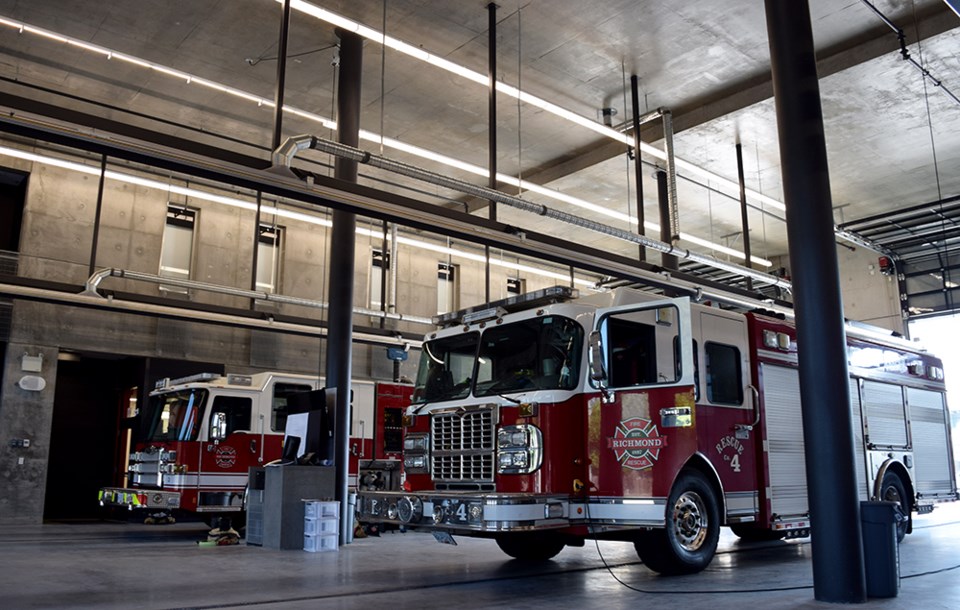
Firefighters and staff have been working at the brand new $24.4 million dollar facility since July, but reporters were invited for a tour Thursday before it officially opens to the public on Saturday.
Wilkinson explained the hall was designed to streamline the response process while keeping the firefighters’ safety front of mind.
When members return to the hall, they drive to the back of the facility and disembark into a de-contamination area. They step into plastic bags, take off their firefighting gear that may be contaminated with anything from hazardous chemicals to bedbugs, and step into the shower room.
Wilkinson explained that dealing with contaminants is important because the biggest risk to his firefighters’ safety is cancer. It trumps even occupational accidents, which are his second-biggest concern.
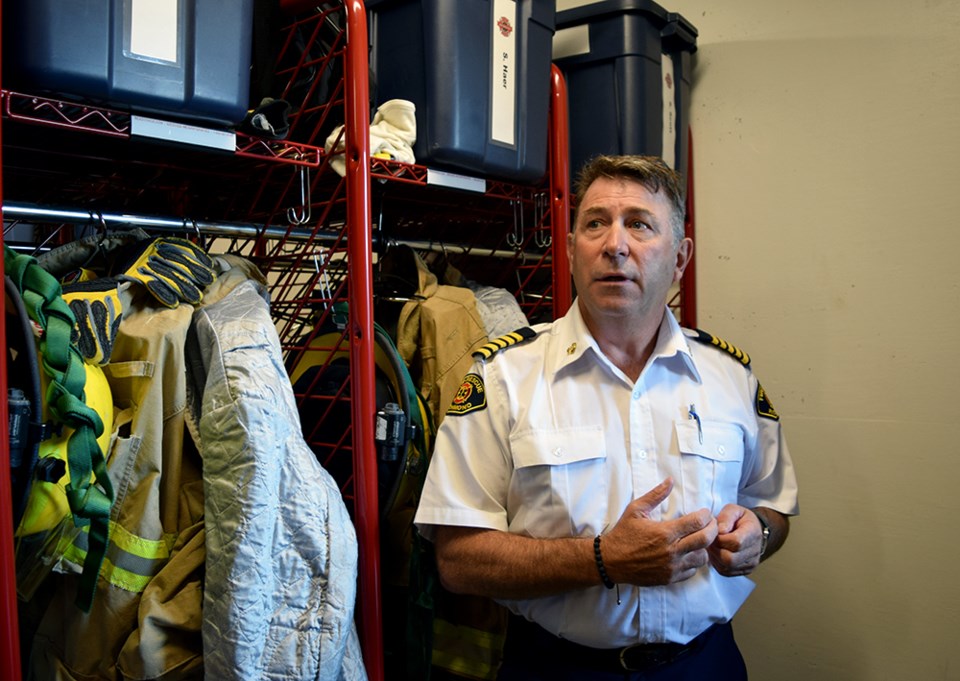
Another issue he’s focusing on is mental health. He thinks the effects of seeing traumatic scenes can amount to a kind of on-the-job injury. While Richmond Fire-Rescue is working on hosting workshops for members and improving access to support services, Wilkinson says something as simple as letting natural light into the fire hall can have an impact on wellbeing.
The new Brighouse Fire Hall serves Richmond’s burgeoning City Centre neighbourhood. Like many of the high-rise homes around it, the building is incredibly energy efficient. Once solar panels are installed on the roof, it will take zero energy from the power grid.
The glass doors even close because of the air pressure differential created by the trucks leaving the garage.
The new fire hall has a gold LEED certification, and fire staff have gotten approval from Richmond City Council to install solar panels on the roof. Photo: Richmond News/Megan Devlin
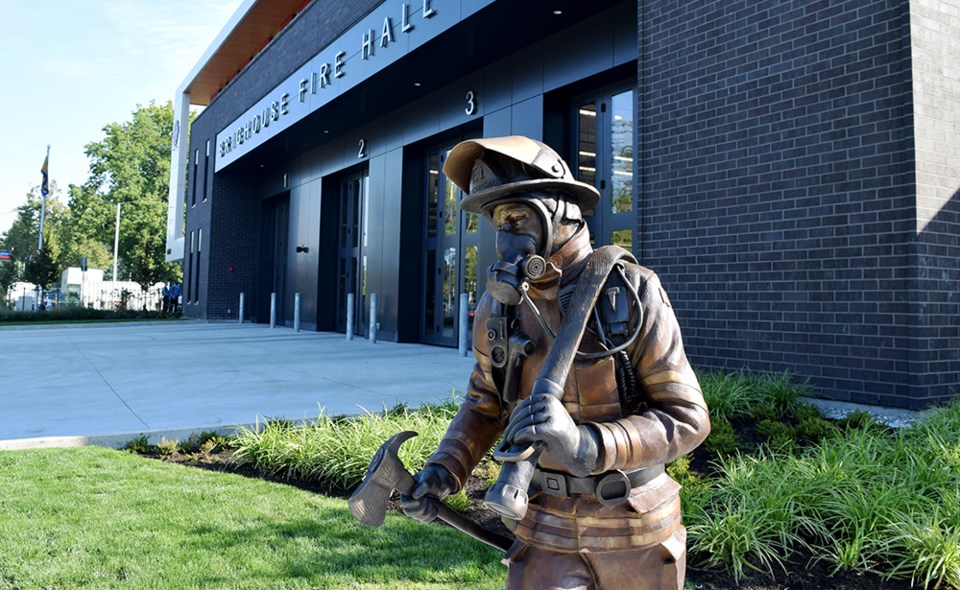
The entire fire service, Wilkinson said, is busier than people might expect. Last year, they responded to about 12,000 calls.
“Richmond is a busy, driving city. It’s a developing city,” he said. “Our call volume is that of a city.”
One challenge specific to the new fire hall is the risk of fires in some of the highrise condos that surround it. Carrying fire equipment up several flights of stairs takes precious time, as does dealing with security to enter the building and each floor.
“They seldom catch on fire. But when they do, it’s a big deal,” Wilkinson said.
After explaining the difficulties of fighting apartment fires, Wilkinson continued the tour by heading upstairs. Half of the second floor is the firefighters’ living area. Wilkinson wanted to be welcoming to a diverse workforce, so the bathrooms are single-room and gender neutral.
Also upstairs is Richmond Fire-Rescue’s administrative offices. Wilkinson’s office contains artifacts from his firefighting career and includes an axe and an antique bell that was sounded when a fire was over.
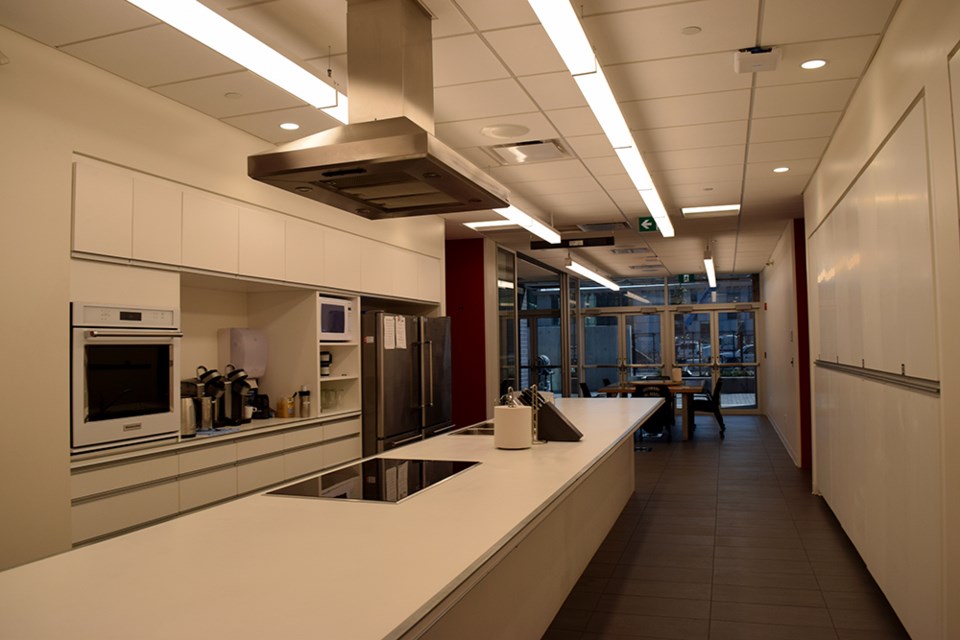
The hall is just one part of a cutting edge approach to the profession of firefighting. Reminiscing on his long career, Wilkinson thinks the profession has become more about precision than simply demanding hard work.
“It’s much more scientific – we’re aware of the reasons fires go out,” he said. “It’s not just putting the wet stuff on the red stuff.”
